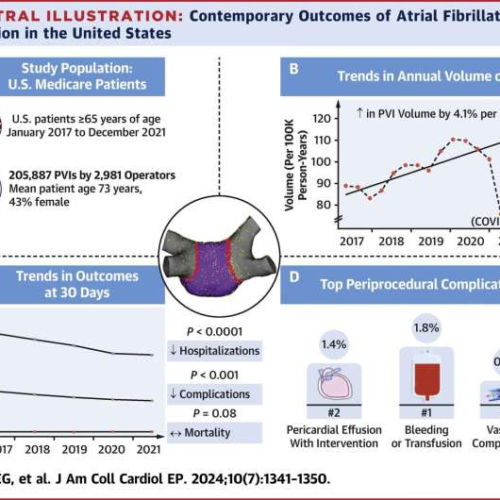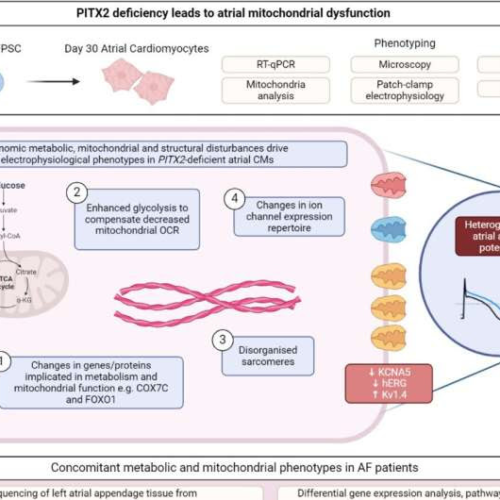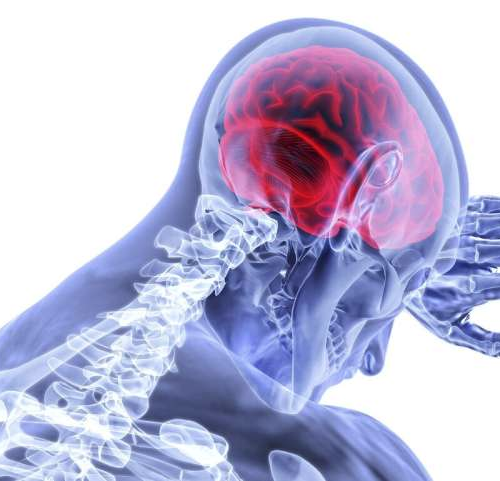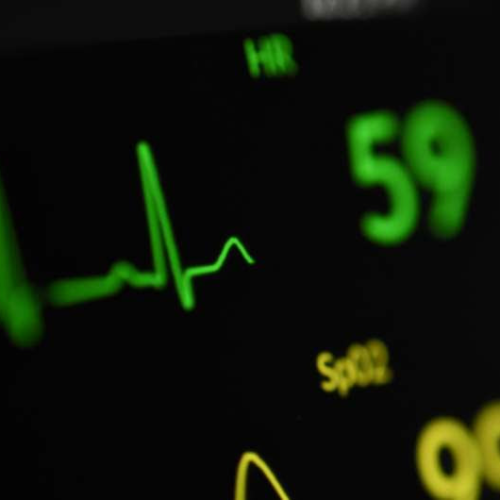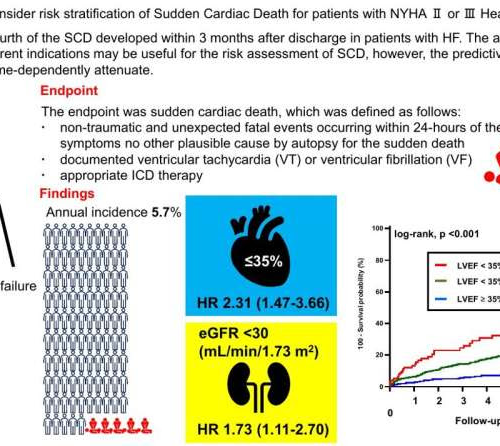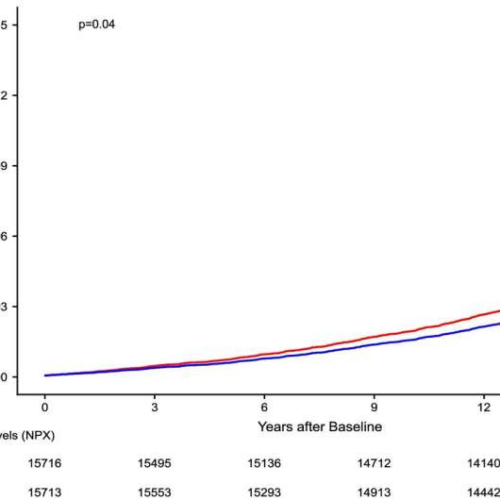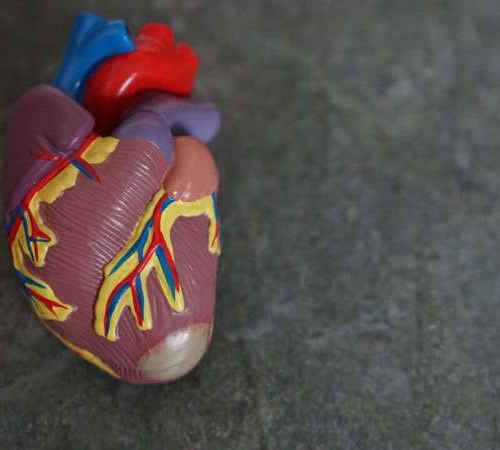August 5, 2024 by Katie Brace, Beth Israel Deaconess Medical Center Credit: JACC: Clinical Electrophysiology (2024). DOI: 10.1016/j.jacep.2024.03.032Affecting as many as 6 million people in the United States, atrial fibrillation (or AFib) occurs when the heart’s upper chambers beat out of coordination with the lower chambers, resulting in an irregular and often rapid heart rhythm....
Tag: <span>cardiology</span>
Gene-related metabolic dysfunction may be driving heart arrhythmia
August 12, 2024 by University of Birmingham Graphical Abstract. Credit: Cardiovascular Research (2024). DOI: 10.1093/cvr/cvae169Patients with a common heart arrhythmia called atrial fibrillation could benefit from future treatments that target inefficiencies in heart cell metabolism, a new paper has found. A study published in Cardiovascular Research Journal discovered that a gene deficiency found in patients...
Brain biomarker in blood sample predicts stroke, researchers demonstrate
August 12, 2024 by Uppsala University Credit: CC0 Public Domain Researchers at Uppsala University Hospital and Uppsala University have demonstrated that a simple blood test that reflects brain health can predict which people are most at risk of suffering a stroke. The discovery could contribute to more individualized treatment of patients with atrial fibrillation. The...
Breakthrough heart MRI technique accurately predicts heart failure risk in general population
News Release 12-Aug-2024 Peer-Reviewed PublicationUniversity of East Anglia New research looking at more than 39,000 UK biobank participants found those with higher heart pressure estimated by Magnetic Resonance Imaging (MRI) were five times more likely to develop heart failureKey risk factors discovered for increased heart pressure include age over 70, high blood pressure, obesity, alcohol...
Short, intense bursts of exercise more effective after stroke than steady, moderate exercise
August 8, 2024 by American Heart Association Credit: Pixabay/CC0 Public Domain One-minute, short bursts of high-intensity interval training for 19 minutes may be more effective for improving fitness among people six months or more after a stroke than traditional, 20–30 minutes of moderate-intensity exercise sessions, according to research published today in the journal Stroke. “This...
Your wearable says your heart rate variability has changed: Now what? A cardiologist explains
July 30, 2024 by Sharon Theimer, Mayo Clinic Credit: Unsplash/CC0 Public DomainWearables measure several aspects of health, and heart rate variability might be one of those. It may be surprising when your device informs you that your heart rate variability is high or low, but what does it mean? Elijah Behr, M.D., a cardiologist at...
What will the new cardiovascular risk calculator mean for patients?
News Release 29-Jul-2024 Analysis forecasts more heart attacks and strokes as fewer people become eligible for cholesterol and blood pressure meds under new risk score tool Peer-Reviewed PublicationHarvard Medical School A recently unveiled cardiovascular disease risk calculator that measures a patient’s risk for heart attack and stroke is better calibrated and more precise than its...
Kidney dysfunction may predict sudden cardiac death in patients with heart failure
July 29, 2024 by Fujita Health University This study by Fujita Health University researchers revealed that kidney function, considered in terms of estimated glomerular filtration rate (eGFR), can be used as a predictor for SCD in patients with congestive heart failure. Credit: Yoshihiro Sobue from Fujita Health UniversityPatients with congestive heart failure (CHF) having a...
Study reveals link between transthyretin levels and heart disease risk
July 29, 2024 by Anna Jones, University of Alabama at Birmingham Cumulative incidence of heart failure stratified by transthyretin levels. Credit: Nature Communications (2024). DOI: 10.1038/s41467-024-50231-1Physician–scientists from the University of Alabama at Birmingham Marnix E. Heersink School of Medicine have uncovered significant findings regarding the impact of transthyretin, or TTR, protein levels on heart disease...
Mouse study finds increasing cardiac ketones may help treat heart failure
JULY 24, 2024 by American Heart Association Credit: Unsplash/CC0 Public DomainIncreasing ketone supply to the heart in mice with heart failure with preserved ejection fraction (HFpEF) allowed their hearts to utilize more ketones and produce more energy, according to preliminary research presented today at the American Heart Association’s Basic Cardiovascular Sciences Scientific Sessions 2024. The...

